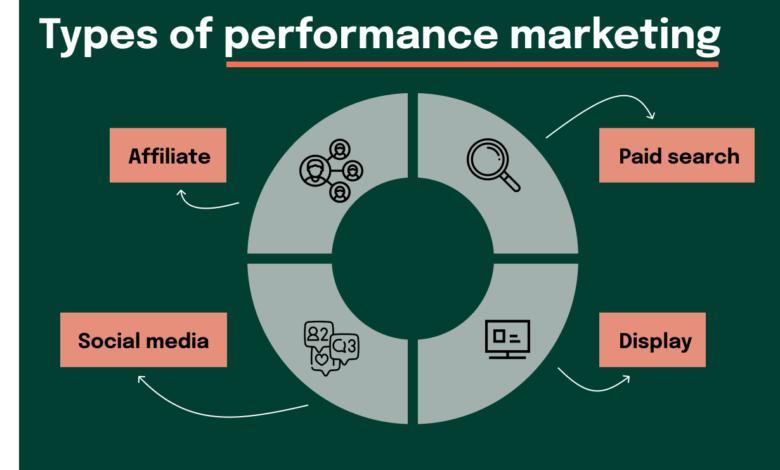Key Features to Look for in a Performance Marketing Platform

Performance marketing has redefined how businesses approach digital advertising, prioritizing measurable outcomes like clicks, leads, or sales over traditional brand-building metrics. Choosing the right performance marketing platform is critical to harnessing this results-driven strategy effectively. With countless platforms available, each offering a unique mix of tools, identifying the key features that align with your business goals is essential. This article delves into the must-have functionalities to prioritize when selecting a performance marketing platform, providing a roadmap to optimize campaigns and maximize return on investment.
Robust Tracking and Attribution Capabilities
At the heart of performance marketing lies the ability to track and attribute actions accurately. A platform must offer precise, real-time tracking of key performance indicators (KPIs) such as cost-per-click (CPC), cost-per-acquisition (CPA), and conversion rates. Look for tools that provide granular insights into user behavior across multiple channels—social media, email, affiliate networks, or paid ads. Advanced attribution models, such as multi-touch or last-click attribution, help clarify which touchpoints drive conversions, enabling smarter budget allocation.
A strong tracking system should also support cross-device and cross-platform tracking to capture the full customer journey. For instance, platforms like Affise offer pixel-based and API-driven tracking, ensuring no conversion goes unrecorded. Additionally, customizable dashboards that visualize data trends empower marketers to make data-driven decisions swiftly.
Seamless Integration with Existing Systems
A performance marketing platform must integrate smoothly with your existing tech stack to streamline operations. Compatibility with customer relationship management (CRM) systems, e-commerce platforms, and analytics tools is non-negotiable. For example, a platform that syncs with Salesforce or Shopify can automate data flows, reducing manual work and errors. This connectivity ensures that campaign data aligns with broader business objectives, such as nurturing leads or upselling customers.
Beyond basic integrations, prioritize platforms that support APIs for custom connections. This flexibility is vital for businesses with unique workflows or proprietary tools. HubSpot Marketing Hub, for instance, excels in integrating with a wide range of third-party applications, making it a versatile choice for businesses of all sizes.
Advanced Automation for Efficiency
Automation is a game-changer in performance marketing, enabling scalability and precision. Look for platforms that automate repetitive tasks like campaign setup, ad scheduling, or affiliate payouts. AI-driven automation takes this further by optimizing campaigns in real time. For example, Scaleo’s AI algorithms adjust bids and target audiences dynamically to maximize ROI, while also detecting fraudulent clicks to protect budgets.
Another critical automation feature is A/B testing. Platforms that allow automated testing of ad creatives, landing pages, or email subject lines help identify high-performing assets without manual intervention. Klaviyo’s automation suite, for instance, streamlines email workflows and personalizes content based on user behavior, saving time while boosting engagement.
Precision Audience Targeting and Segmentation
Effective performance marketing hinges on delivering the right message to the right audience. A platform should offer robust targeting capabilities, allowing segmentation based on demographics, purchase history, browsing behavior, or geographic location. Advanced tools go beyond basic filters, using predictive analytics to identify high-value audiences. Affise’s smartlink technology, for example, directs users to the most relevant offers based on their profile, increasing conversion likelihood.
Behavioral targeting is particularly powerful for retargeting campaigns, re-engaging users who previously interacted with your brand. Platforms that integrate with data management platforms (DMPs) or leverage first-party data can refine targeting further, especially in a privacy-focused landscape where third-party cookies are phasing out.
Comprehensive Fraud Detection and Prevention
Fraudulent activities, such as click fraud or fake conversions, can drain marketing budgets and skew performance data. A reliable platform must include robust fraud detection mechanisms. Features like IP filtering, device fingerprinting, and anomaly detection help identify suspicious activity early. Scaleo, for instance, uses machine learning to flag invalid traffic, ensuring your budget is spent on genuine interactions.
Beyond technical safeguards, look for platforms that offer transparency in affiliate or partner performance. Tools like Tipalti provide detailed audit trails and compliance checks, reducing the risk of fraudulent payouts in affiliate programs. This is especially crucial for businesses scaling campaigns globally, where fraud risks are higher.
Scalability to Support Growth
As your business evolves, your performance marketing platform must keep pace. Scalability encompasses both technical capacity and feature flexibility. A platform should handle increased campaign volumes, additional channels, or new markets without performance lags. For example, enterprise-grade platforms like SEMrush support complex, multi-channel campaigns with minimal downtime, while smaller tools like Referral Rock cater to growing businesses with modular features.
Scalability also means adapting to emerging trends, such as new social media platforms or advertising formats. Platforms that regularly update their capabilities or offer plug-and-play integrations for new channels ensure your marketing strategy remains agile. Check for a provider’s roadmap or update history to gauge their commitment to future-proofing.
User-Friendly Interface and Support Resources
A platform’s usability directly impacts its adoption and effectiveness. Complex interfaces can slow down campaign execution, particularly for teams with limited technical expertise. Prioritize platforms with intuitive dashboards, drag-and-drop editors, and clear reporting tools. Klaviyo’s user-friendly design, for instance, simplifies campaign creation for novices while offering advanced options for seasoned marketers.
Equally important is the quality of customer support. Look for platforms with responsive support teams, accessible via multiple channels like live chat or email. Comprehensive onboarding, tutorials, and community forums enhance the user experience, especially for businesses new to performance marketing. Referral Rock stands out for its dedicated support and extensive knowledge base, helping users maximize platform potential.
Flexible Pricing and Transparent Costs
Pricing structures vary widely among performance marketing platforms, and the right choice depends on your budget and campaign scale. Some platforms offer free tiers with basic features, ideal for startups, while others use subscription-based or pay-per-performance models. Evaluate whether a platform’s pricing aligns with your expected ROI. For instance, SplitMetrics Acquire’s Starter plan suits small businesses with capped ad spend, while HubSpot’s tiered pricing scales with enterprise needs.
Transparency is critical—hidden fees for additional users, integrations, or traffic can inflate costs unexpectedly. Platforms like Scaleo emphasize clear pricing, but always review terms for volume-based charges or premium feature costs. A cost-effective platform delivers value without compromising on essential features.
Ensuring Data Privacy and Compliance
With data privacy regulations like GDPR and CCPA shaping marketing practices, a platform must prioritize compliance. Features like consent management, secure data storage, and anonymized tracking are essential for protecting customer information. Matomo, for example, offers GDPR-compliant analytics, giving businesses peace of mind while maintaining robust reporting.
Compliance extends to affiliate and partner relationships. Platforms like Tipalti automate tax compliance and payment regulations, simplifying global campaigns. Ensure the platform you choose aligns with your industry’s regulatory requirements and provides audit-ready reporting to avoid penalties.
Aligning Features with Strategic Goals
The ideal performance marketing platform balances powerful features with usability, scalability, and compliance. Robust tracking and attribution lay the foundation for data-driven decisions, while integrations and automation streamline operations. Advanced targeting, fraud prevention, and scalability ensure campaigns remain effective as your business grows. By prioritizing these features, you can select a platform that not only meets immediate needs but also drives long-term success in an ever-evolving digital landscape.



